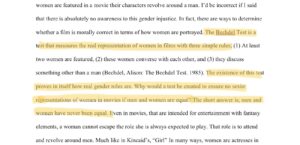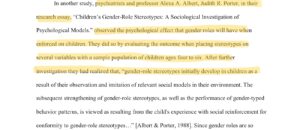Self Assessment Essay
Throughout all my years of school, English has always been straightforward to me. It usually only consisted of simple reading and responses that followed them. However, this semester introduces an entirely new aspect for me. Throughout all the phases, I was able to learn something that helped me examine English in a more critical and social lens. Doing so made it possible for me to achieve some learning outcomes, though there’s always room for improvement.
During phase one, I was expected to thoroughly examine the Standard English language/dialect and how it’s been standardized. In the end, we were asked to write an argumentative essay on language and literacy and how important they are. I’ll admit, initially it was difficult for me to argue either side. Standard English having no room for creativity led me to disliking writing while misunderstanding prompts . This was evident with my final draft that I had submitted earlier on. My writing was messy and lacked sustenance, mainly because I learned to dislike writing since it was always repetitive. I didn’t realize that this assignment urged me to do the opposite. Through this, I failed to achieve the course learning outcome, “acknowledge your and others’ range of linguistic differences as resources, and draw on those resources to develop rhetorical sensibility”(1). In the image below,We can see how I use evidence to “support” my argument, however my analysis lacks meaning as it simply

restates what Baldwin is doing without connecting it to my thesis. Once receiving feedback from my professor and peers, I was able to accurately prove my argument and thus strengthen my ability to articulate my stance and explain why that is. They suggested that I used students’ discussions and shared experiences on linguistic differences in order to make my argument and standpoint more solid. I realized that my analysis could have more thought and connection. So once I had the opportunity to revise, I made sure to factor in all of these suggestions which resulted in me achieving the sixth learning outcome, “formulate and articulate a stance through and in your writing” and “enhance strategies for reading, drafting, revising, editing, and self-assessment”(2) I made sure to make my argument and analysis as clear as possible while inserting relevant information, evidence and analysis. Overall, phase one was very enlightening as I realized that my writing needed much improvement.
During phase two of this semester, I was expected to write my own notice and focus on essays examining a specific example of race, gender, or linguistic conflict based off the readings in class. As well as how to rhetorically appeal to our audience. After my experience from the last paper, I had already made much improvement and it was very easy for me to develop a strong thesis, relevant evidence, and analysis that made sense. All while considering the rhetorical situation of my audience. My paper being on gender roles was targeted to my female audience as I used readings by women to touch women. This made it possible for me to, “negotiate your own writing goals and audience expectations regarding conventions of genre, medium, and rhetorical situation” and “develop and engage in the collaborative and social aspects of writing processes” by analyzing the exigence of the authors work and explaining its depth as shown below, 
I would have to say that phase three was most educational for me, as I got to compose all my skills as a writer into this last major writing assignment. In this phase I had the opportunity to choose an author from the provided readings, understand their argument, and find sources that support them. I was most excited to write this paper since my chosen theme was gender roles and as a woman I felt that there was much to be said on this topic. In addition to this, I was able to practice how gender roles can manifest in different ways which led me to, “engage in genre analysis and multimodal composing to explore effective writing across disciplinary contexts and beyond ”. In addition to this, practicing different ways of conveying my theme such as the type of evidence I use as well as how I insert it into my paper brought me to accomplishing, “practice using various library resources, online databases, and the Internet to locate sources appropriate to your writing projects” and “strengthen your source use practices (including evaluating, integrating, quoting, paraphrasing, summarizing, synthesizing, analyzing, and citing sources)” see below,

Work Cited:
-Kincaid, Jamaica. “Girl.” The Vintage Book of Contemporary American Short Stories, edited by
Tobias Wolff, Vintage, 1994, pp.306-07
-The Bechdel Test
– Albert, Alexa A., and Judith R. Porter. “Children’s Gender-Role Stereotypes: A Sociological Investigation of Psychological Models.” Sociological Forum, vol. 3, no. 2, 1988, pp. 184–210. JSTOR, http://www.jstor.org/stable/684364. Accessed 8 May 2023.

